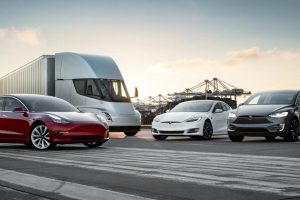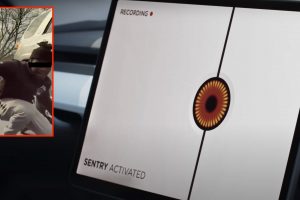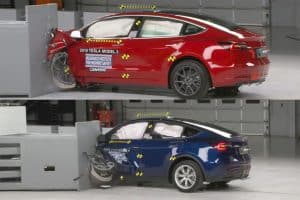For reasons that may not seem immediately clear, Castrol, maker of motor oils for internal combustion engines, decided to ask 1000 prospective new car buyers and fleet managers about their attitudes regarding electric cars. The results of the survey reveal that what most of the people who responded to the survey want is a car with 319 miles of range, costs $36,000, and can be recharged in 30 minutes or less. 57 percent said EVs are currently too expensive for their budget and 60 percent said they were taking a “wait and see” attitude.
So why would Castrol commission such a survey? According to Car and Driver, Mandhir Singh, CEO of Castrol, said in a statement: “With EV technology constantly improving, the challenge now will be to drive a low-carbon recovery and accelerate the EVolution as quickly as possible. Castrol has been working with the automotive industry to develop unique e-Fluid technology to support EVs, from battery coolant e-fluid, e-greases, and transmission fluids.”

The results of the survey differed by country. Japanese customers were willing to pay up to $42,000 for an EV while people in the UK said $30,000 was the magic number. US customers said $36,000 was the tipping point for them. In the US, 60% of fleet managers said they were waiting for others in the industry to make the transition to EVs first. Two thirds of people said EVs would not dominate sales until they can be recharged in the same time as it takes to put gas in a conventional car. About the same number said they were concerned about the cost of maintaining an electric car.
Those last two points highlight the need for educating consumers about the benefits of driving on electrons instead of molecules. Most people do not realize that the majority of recharging occurs at home while a car is not in use , which means they never have to take time out of their day to recharge. They also are unaware that electricity costs about half what gasoline does even with today’s low gas prices.
Range is another significant issue. Perception is reality for most of us and 300 miles of range is perceived as some sort of talisman by many. I have a neighbor who insists he would never consider an electric car that had less than 300 miles of range even though his daily driving seldom involves going more than 50 miles. When I ask him why he feels he needs that much range, he says he visits a friend once a year who lives 256 miles away and so he needs that much range to feel comfortable making the trip. When I suggest he might spend an extra 30 minutes on the road to recharge once a year in order to lower his annual carbon footprint, he looks at me like I have two heads. For him, it’s 300 miles of range of nothing. And yet the Volkswagen ID.3 has just completed a 331 mile journey without recharging in real world driving, so there is hope for people like him.
David Bouet, President of BP Lubricants, says in a press release regarding the Castrol survey, “The global automotive industry has been impacted hugely by the coronavirus pandemic, and the US industry is no different. As we look forward to the road to recovery, I believe that electric vehicles have a key role to play. Castrol’s research shows that there is an appetite amongst consumers to make the switch to electric. Vehicle manufacturers have an opportunity to do more to translate this into buying decisions, especially at a time when consumer behavior is bound to be more cautious. Accelerating the EVolution provides a clear roadmap for the industry to help accelerate mainstream adoption of EVs.”
The results of the Castrol survey follow closely those of a similar survey conducted by BMW as part of its effort to understand who its customers for the new MINI SE electric car might be. Once again, the amount of misinformation about electric cars out there in the minds of consumers was evident. Most had no idea where the nearest EV charger was, how much electric cars cost, how far they could go, or how much they can save in gas and maintenance by driving an electric car.
That is a massive indictment of traditional automakers who have done next to nothing to educate the buying public about electric cars despite many models being on the market for a decade. If we wait for auto companies to get the word out on EVs, the Atlantic Ocean will be lapping at the Appalachian mountains before EVs go mainstream. The best way to reach people is to give them an opportunity to ride in an electric car, something the mainstream manufacturers like to make as difficult as possible. And yet Tesla rolls on, building new factories all over the globe and selling every car they can bolt, weld, or cast together. Either Tesla is run by a confederacy of dunces or the mainstream automakers are looking at the world of transportation through the wrong end of a telescope.
Original Publication by Steve Hanley at CleanTechnica.
Want to buy a Tesla Model 3, Model Y, Model S, or Model X? Feel free to use my referral code to get some free Supercharging miles with your purchase: http://ts.la/guanyu3423
You can also get a $100 discount on Tesla Solar with that code. Let’s help accelerate the advent of a sustainable future.





